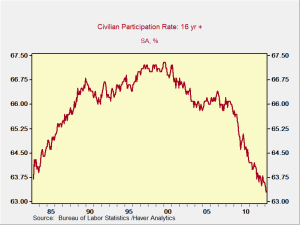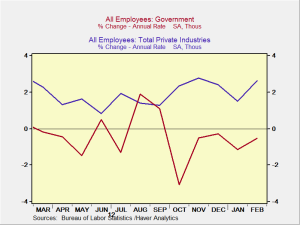I love alliteration. A game my family plays on long car trips is to see how many words starting with the same letter we can string together and still make sense. I hold the record so far with something like Cape Cod Canal Commission Community College Cheerleading Co-Captain’s Conference Center classroom chatter, or CCCCCCCCCCCcc. Top that!
The topic for today, however, is the budget battle. We now have three budgets out there—the Senate Democrats’, the House Republicans’, and the President’s. While none of them will be passed as presented, we can reasonably define the box that the final budget will fit in. I plan to do a detailed analysis and comparison in the next couple of days.






